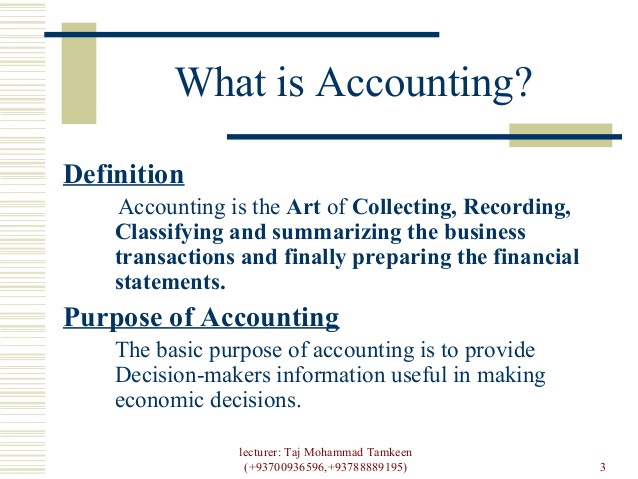
These expenses usually require large upfront investments but may result in substantial long-term gains. CapEx and OpEx are two common terms used to describe how a company invests in its growth and operations. Operating expenses can be a useful tool for businesses of all sizes. They help track your progress and make necessary adjustments to improve your bottom line. With the composite score 9.4, the highest emotional footprint and likeness to recommend, CMW Platform topped the list of the best business process management software. Accounting standards allow companies to estimate the charge for each category based on percentage.
Income Tax Provision and GAAP Financial Statements – eisneramper.com
Income Tax Provision and GAAP Financial Statements.
Posted: Wed, 21 Jun 2023 21:03:30 GMT [source]
A variable cost can change, depending on the production and sales levels of products or services. Depreciation expenses are also an advantage for the company from a tax point of view. Depreciation can be computed using many methods, such as the straight-line method, the sum of years digits method, the double declining method, and production units. The depreciation amount is credited to the cumulative depreciation account, which is accounted for under the company’s Balance Sheet.
Wealth Opportunities in Commercial Real Estate: Management, Financing, and Marketing of Investment Properties by
The expense of owning a car includes things like gas, insurance, and maintenance. On the other hand, OpEx, or Operational Expenditures, are typically smaller investments made to support daily operations such as purchasing office supplies or paying employee salaries. These expenses are often recurring and require fewer upfront costs. In
truth, investors don’t decide to buy properties; they decide to buy the income
streams of those properties.
The guidance for determining scrap value and life expectancy can be ambiguous. So, investors should be wary of overstated life expectancies and scrap values. Thousands of business owners trust Akounto for managing their accounts. Dive in for free with a 10-day trial of the O’Reilly learning platform—then explore all the other resources our members count on to build skills and solve problems every day.
Importance of Operating Expenses
Operating expenses are expenses incurred by a company for its normal business operations. Since fixed assets generate income, depreciation is considered an operating expense. Depreciation replicates the period and scheduled conversion for a fixed asset into an expense as the asset is used during normal business operations. As the assets are used to generate operating income in the normal course of business, depreciation expense is considered an operating expense.

Depreciation can be an operating expense or classified as the cost of sales. The difference depends on the underlying asset and its usage within operations. Depreciation is a part of the cost of sales and operating expenses. For instance, what are the three types of accounts depreciation on machinery and factory will fall under the cost of sales. Since depreciation satisfies the criteria this definition sets, it is an expense. Consequently, companies present it in the income statement as a profit reduction.
What Is Included In Operating Expenses?
Accumulated depreciation is usually not listed separately on the balance sheet, where long-term assets are shown at their carrying value, net of accumulated depreciation. Since this information is not available, it can be hard to analyze the amount of accumulated depreciation attached to a company’s assets. Depreciation expense is a significant consideration when it comes to calculating the value of an asset over its useful life. There are different methods of calculating depreciation expenses, each with its advantages and disadvantages. The most common method used to calculate depreciation is straight-line depreciation where equal amounts of depreciation are deducted every year until the asset reaches its residual value.
Examples of non-operating expenses are interest payments on debt, restructuring costs, inventory write-offs and payments to settle lawsuits. By recording non-operating expenses separately from operating expenses, stakeholders can get a clearer picture of company performance. High operating income provides your business with cash for working capital needs and other expenses to keep business going. Operating income is the excess profit above your operating expenses, which also include depreciation and amortization expenses. Keeping tight control over operating expenses allows you to fully realize your company’s operating profit. Different methods exist for calculating depreciation expenses including straight-line method, declining balance method and units-of-production method.
Why is Depreciation an Operating Expense?
Depreciation is nothing but a diminution in the value of an asset, due to natural wear and tear, exhaustion of subject matter, effluxion of time accident, obsolescence or similar causes. These materials were downloaded from PwC’s Viewpoint (viewpoint.pwc.com) under license. As per IAS 16, the depreciable amount is equal to the purchase cost of the asset, less the salvage value or other amount like the revaluation amount of the asset. Harold Averkamp (CPA, MBA) has worked as a university accounting instructor, accountant, and consultant for more than 25 years.
Concentrix Reports Second Quarter 2023 Results Concentrix … – Investor Relations Concentrix Corporation
Concentrix Reports Second Quarter 2023 Results Concentrix ….
Posted: Wed, 28 Jun 2023 20:19:50 GMT [source]
By understanding your operating expenses and taking steps to keep them low, you can put yourself in a better position for long-term success. This means that you will have a separate category for each type of expense, and you will track the amount spent in each category separately. Reducing operating expenses is important to creating and maintaining a successful business. It can lead to lower costs, improved efficiency, and increased profits when done effectively.
It is charged on the assets that are crucial in normal business operations. To illustrate the add back of losses from disposals of noncurrent assets, assume that Rumble Corp. sold a piece of equipment for $150. The equipment had a cost basis of $160 and had accumulated depreciation of $100.
No matter which method you use, keeping accurate records of your operating expenses is important. This information helps ensure your business runs efficiently and within its budget. To calculate your operating expenses, add SG&A, COGS, depreciation, and amortization expenses for a given period. This will give you your total operating expenses for that period.
Is depreciation an overhead cost?
Other typical examples of overhead in cost accounting include indirect labor, indirect materials, utilities, and depreciation.
